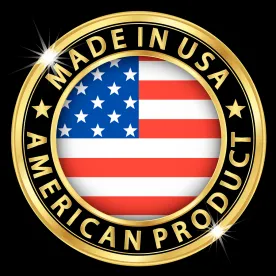-
On March 26, the USDA responded to two petitions that requested FSIS amend the Agency’s Food Standards and Labeling Policy Book to provide that any beef product labeled as “Made in the USA,” “Product of the USA,” “USA Beef,” or in any similar manner be derived from cattle that have been born, raised, and slaughtered in the US. The two petitions were submitted by the Organization for Competitive Markets (OCM) and the American Grassfed Association (AGA) on June 17, 2018, and the United States Cattlemen’s Association (USCA) on October 23, 2019. The response letters for OCM/AGA can be found here and here for USCA.
-
The petitions alleged that since the repeal of country of origin labeling (COOL) requirements in 2015, there has been no official definition of US beef, nor any specific “Made in USA” labeling requirements for beef products that are so labeled. Petitioners argued that the lack of a clear definition of what constitutes “Made in USA” or “Product of USA” or other similar designations leads to consumer confusion.
-
As a reminder, in 2013, the USDA implemented COOL rules, requiring meat labels to indicate where animals were born, raised, and slaughtered. Meatpacking and livestock commodity groups in the U.S., Canada, and Mexico challenged the COOL requirements via appeal to the World Trade Organization (WTO) and a lawsuit filed in the U.S. (alleging that the requirements infringe First Amendment rights). The controversy surrounding mandatory COOL rules for beef products ultimately culminated in: (1) a WTO ruling that the COOL requirements violate U.S. trade obligations to Canada and Mexico and (2) Congress repealing COOL as of December 21, 2015.
-
In response to the two petitions, FSIS concluded that “its current labeling policy, which permits meat and poultry products that were derived from animals that may have been born, raised and slaughtered in another country but processed in the United States to be labeled as ‘Product of USA,’ may be causing confusion in the marketplace, particularly with respect to certain imported meat products.” Thus, FSIS decided to initiate a rulemaking to define the conditions under which the labeling of meat products would be permitted to bear voluntary statements that indicate US as the product origin. As indicated in the response letters, FSIS intends to propose that such labeling be limited to meat products derived from livestock that were slaughtered and processed in the US. The policy will focus on where the product is made (i.e., slaughtered and processed) without regard to where the animal was born and raised, meaning that cattle born and raised outside of the US, but slaughtered and processed in the US would be able to bear a “Made in the USA” label.
USDA Decides to Initiate COOL Rulemaking to Clear Consumer Confusion
Wednesday, April 8, 2020
Current Public Notices
Published: 4 September, 2025
Published: 3 September, 2025
Published: 28 August, 2025
Published: 25 August, 2025
Published: 25 August, 2025
Published: 25 August, 2025
Published: 25 August, 2025
Published: 22 August, 2025
Published: 20 August, 2025
Published: 20 August, 2025
Published: 18 August, 2025
Published: 18 August, 2025
Published: 11 August, 2025
Published: 8 August, 2025
Published: 26 June, 2025



 />i
/>i

